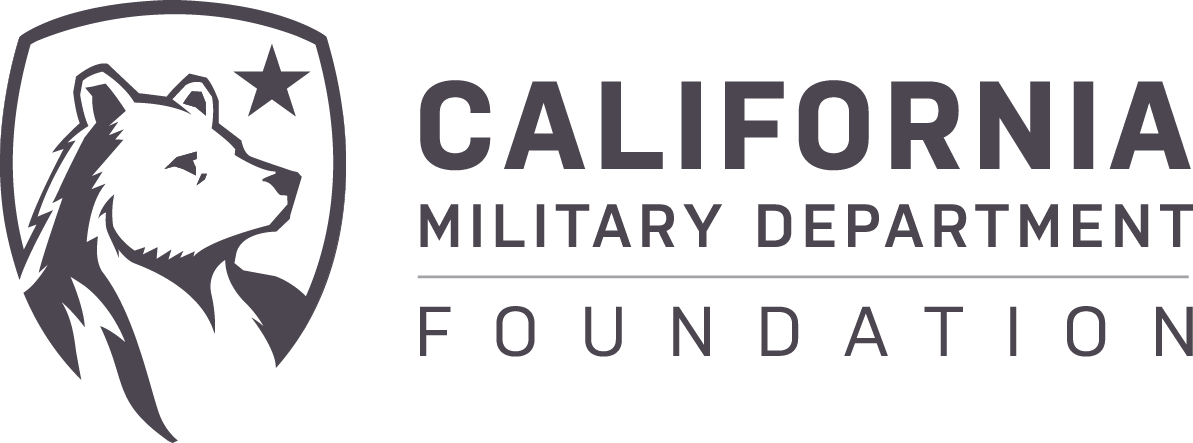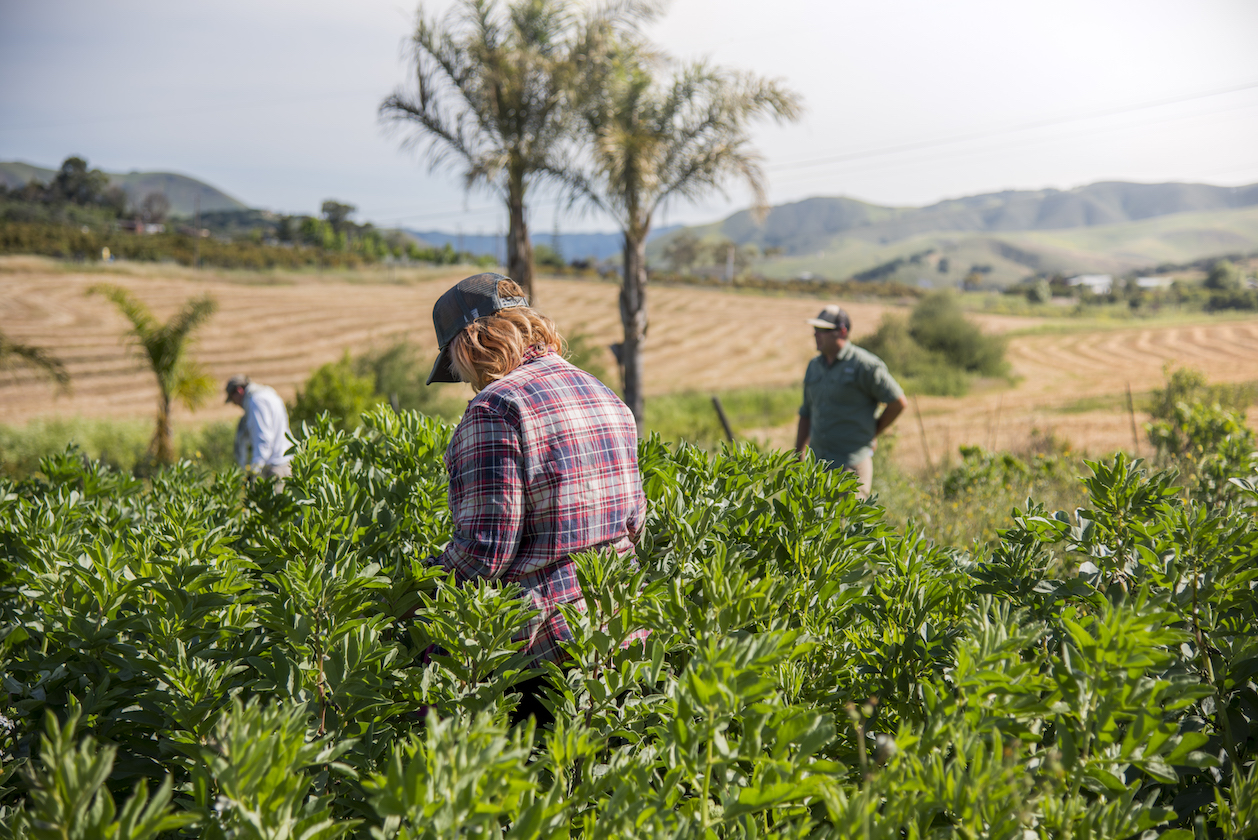California Warrior - Morgan Boyd
Morgan Boyd grew up on Pepper Creek Family Farm. With no interest in taking over the family’s 15 acre farm, he and his brother joined the military just before 9/11 . Since, they have teamed up with the Veteran Farmer Coalition (VFC) to establish a 12 week VA recognized program at Cal Poly to train people to be prepared to go from “soil to sale” in “small scale family agriculture”.
Cal Poly’s Farmer Experiential Education and Development (F.E.E.D.) is designed to educate our Nation’s under served communities AND Veterans to enhance their ability to start their own successful farming operation or to move into other areas of the agricultural industry.
Become a #CaliforniaWarrior at the California Warrior Experience hosted by the California Military Department Foundation and produced by Race SLO on March 24, 2018. We'd also love to hear your #CaliforniaWarrior story - submit it today at https://www.californiawarrior.org/welcome.
Morgan Boyd
What does being a California Warrior mean to you?
I’m definitely a sustainable agriculture warrior who cares not only about feeding our communities, but doing it in a sustainable way. I also see myself as a California Warrior in helping veterans transition into agriculture.
Can you tell us a little bit more about the Cal Poly F.E.E.D. program?
I teach the agricultural internship class, which is much more than an internship. It teaches all the horticultural and crop sciences that we're teaching in the F.E.E.D. program.The students spend two days a week with me. They spend their mornings in a classroom, and then all afternoon, for four hours, out on the farm. Kind of applying what they've learned, and tending to their garden plots that they've put together throughout the course.
By the time they finish our program they will have already started harvesting some of their own produce. They're really enjoying it!
How many veterans were in your first class?
We're just getting the program off the ground. I started developing the program when I was first doing my Masters at Cal Poly in 2014. It's taken several years to get the course off the ground. It was quite challenging, but we were able to get two veterans and five others from underserved communities
I felt that it was important for veterans to start integrating back into their community and by going through a program that has other members of their communities in it, it helps with that reintegration. So, I've been working really hard in trying to get more veterans in the program. There's a large need for veterans in agriculture across the nation and we're struggling to find veterans to be frank with you.
There are programs like those at Cal Poly Pomona and those classes have a larger veteran community to pull from.
I have had veterans as far away from Iowa and Texas who have expressed a desire to attend the program. Unfortunately, logistically it just didn't work out for them. We are one of the few programs in the nation that's certified by the VA so that you can better utilize your GI Bill or Chapter 31 benefits, which is huge for a program like this because it's a twelve week program and those veterans need to have some assistance especially in terms of their housing allowance so they can afford to stay up here.
What are the next steps after the twelve week programs for one of the veterans or members of the community that takes part of the program?
The program is a four credit certificate program so they get sixteen units of college credit that's transferable. That's a huge benefit to them if they desire to continue their agriculture education.
What we're finding is that most of these students want to take this course and move right into the agricultural industry. Primarily production, at least from this cohort. They all want to become producers.
Essentially, we kind of provide mentorship, post-graduation support and try and get them placed on a farm if they want to continue learning for a couple of growing seasons. Although what we found for this cohort is that only one of the seven students does not have land. That one student is looking to apply her education and moving to third world countries to teach sustainable agriculture.
An Air Force veteran who already has a farm is developing their business model and the program has helped them develop it. They're planning on getting right into it and in fact they're actually kind of starting right now doing all their farm planning and hopefully they'll be up-and-running by the Spring. They'll probably put the farm in cover crop, which is common for the type of farming that we do over the winter.
Do the ones that are in the program already have a bachelor's or were they all enrollees at Cal Poly prior to this?
No, all walks of life. In fact our other veteran is a professional beekeeper. He's a former E-9 in the Air Force. Thirty-two plus year veteran of the Air Force and he wanted to learn about agricultural production to help his own operation. He's not necessarily a conventional, row crop farmer. He's looking at it in terms of finding land to support his honey bee production. He's been tremendously helpful in the program.
We have a very unique blend of students that are in this first cohort. We're really excited about it. We have two sisters whose father sent them to the program because they want to start a commercial pistachio operation in the valley. More on the commercial scale than what we typically teach, but they're learning quite a bit. They've already learned about irrigation and integrative pest management, disease and weed control, things of that nature. I’m sure it's kind of like drinking from a fire hose.
One of our students is eighteen, just graduated high school. So, we're teaching the whole gamut of experience in gardening. Nobody has been, per se, a farmer in that past. One of our students has ran a community garden but running a quarter acre community garden is significantly different than getting into production.
Do you have a sense of how many programs are like this around the country?
They're trying to span us across the country. I don't know an exact number. There's a few. It's really hard to get certified for the GI Bill benefits. That's a big barrier for a lot of programs. Plus, these programs are reliant on outside funding to get set up. We're very fortunate to get a couple of grants that helped fund us while I developed a program. It's extremely difficult to do it without funding. Or an endowment from a university, but like I said it's been a lot of work just to get us to where we are. We're really hopeful that we'll continue to grow and have people spread the word out there about the program.
Thank you for being a California Warrior!
You can also learn more about Veterans to Farms in the 2013 documentary Ground Operations: Battlefields to Farmfields by Dulanie Elli.


